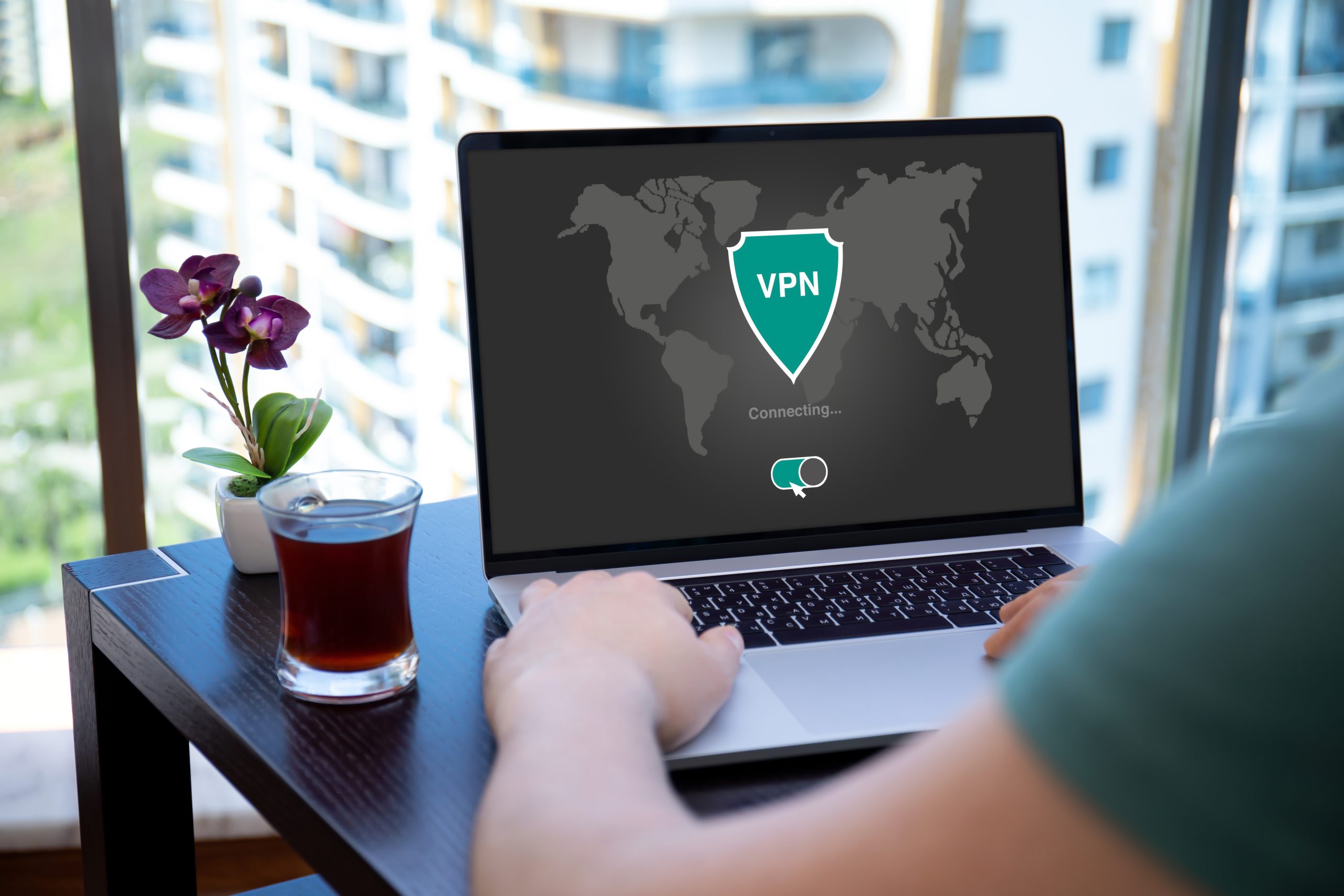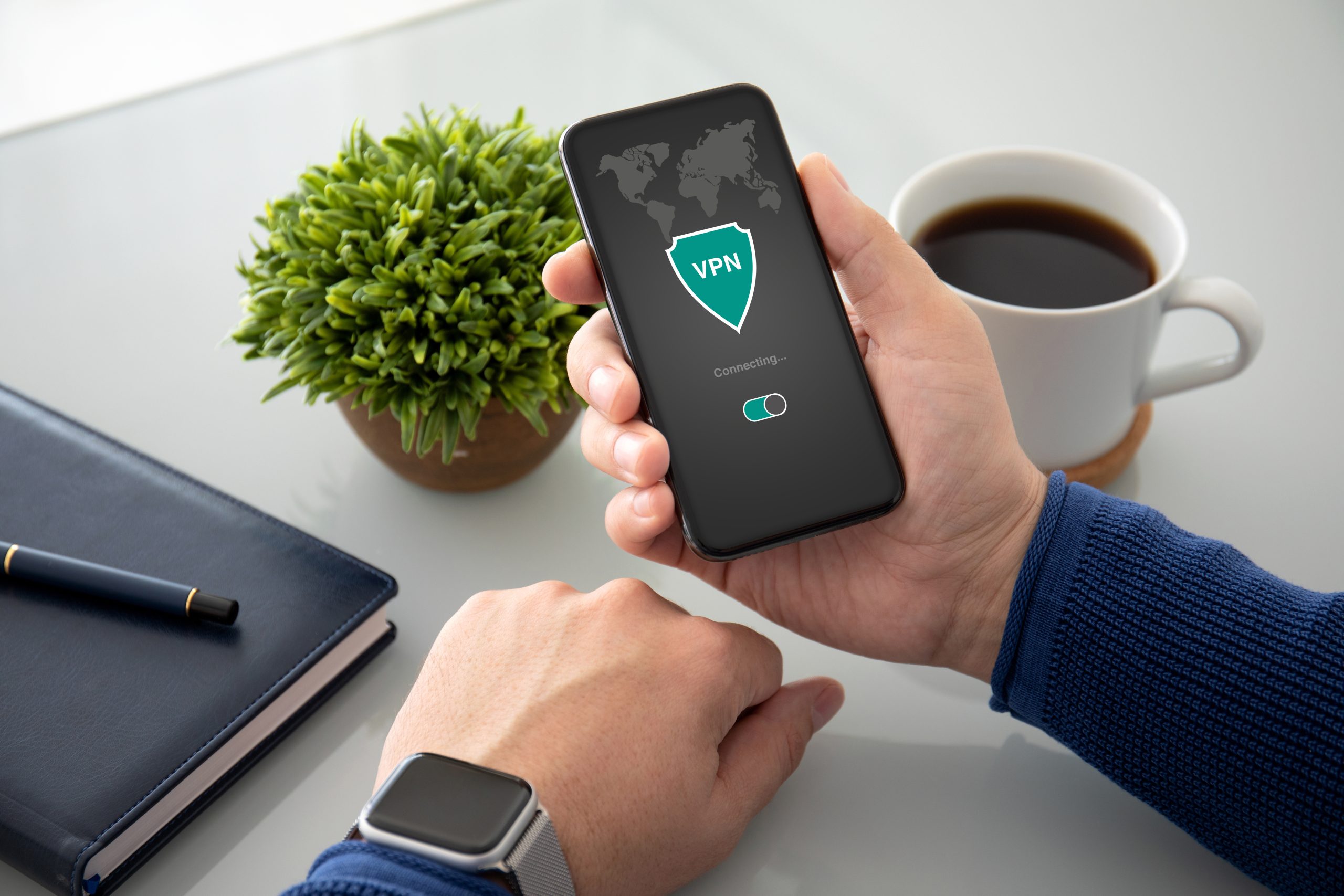
A Beginners Guide to VPN – A Complete VPN Guide for 2025 – HostNamaste.com
Along with the advancement of the internet in our modern world, one of our top priorities should be the need for more secure ways to browse while being less concerned about cyber-attacks. This led to the creation of virtual private networks (VPNs).
With that in mind, here is a beginner’s guide to the basics of VPN and how it works, including the difference between proxy servers and VPNs. Other aspects that will be covered are reasons why you should consider getting a VPN service, things to look for when choosing a VPN, and setting up your VPN for the first time to help you get started.
What Is A VPN And How Does It Work?
A VPN connects a private network to a public network, allowing users to send and receive data as if their devices were directly related to the private network. In other words, when the device is connected to a public network, it establishes a secure network connection by encrypting internet traffic and concealing your current online identity.
VPN acts as a filter for browsing, masking your IP address and allowing VPN to function as your point-to-point data source. This method protects your browsing data and anything you send or receive from third-party connections and your internet service provider (ISP). VPN services are primarily available on many devices and countries, such as VPN for South Africa, and this process happens in real time while browsing the web.
Proxy Server Vs. VPN: Which Is Better?
Another way to protect your data while browsing the internet is to use proxies, which work by hiding your IP address after logging in on a single app or site. However, a VPN does the same and more; it can secure network traffic and redirect your data through an encrypted tunnel, providing additional security and advanced features for your browsing.
Reasons To Get A VPN Service
A VPN is an excellent tool for increasing the security of your computing and internet browsing experiences. If you’re wondering how that applies in practice, here are some reasons you should get a VPN service for your device.
- Utilizes Public Wi-Fi Safely and Securely
The availability of public Wi-Fi is beneficial for users, but because it is open to anyone, the risk of malicious attacks and data theft is also high. Using a VPN conceals your internet data, browsing history, and private information from others who share the same public Wi-Fi network.
- Protects Your Data From Your ISP
A private network (such as your home internet connection) is more secure and less vulnerable to cyber-attacks from strangers than public Wi-Fi. However, it is essential to note that your ISP can view your data and information and every detail of your browsing. In many cases, ISPs sell data to advertisers, resulting in the ‘coincidence’ of relevant ads appearing on your screen. Using a VPN can conceal your IP address and browsing data from your ISP.
- Provides Data Protection from Apps and Services You Use
Most apps and services on the internet are not ‘free’ because they collect and sell your data while you are browsing the internet. A VPN hides your browsing data from these apps and services and limits the collection of your location and browsing history to prevent this from happening.
- Allows Access to Any Content Anywhere and Saves Money
Some websites are unavailable or inaccessible in many regions or countries, most notably streaming platforms. A VPN allows you to change your location and browse from a different location or country, giving you access to these contents. Concurrently, some businesses and services charge less depending on the location of your device from which you are logging in, which can help you save money on subscriptions or internet transactions in general if they are cheaper elsewhere.
- Secures Your Business or Workplace Data
Most information in businesses and corporations should be kept confidential. A VPN can encrypt your data and prevent malicious attackers from hacking into your office network and stealing data. It is also possible to authorize anyone wishing to log in, which can protect you during financial transactions.
- Allows For A Better Gaming Experience
A VPN allows you to access more games and features and bypass bans from your location by spoofing to another place. You can also play using public Wi-Fi without worrying about your data and protect yourself from internet trolls during multiplayer games. Moreover, as VPN can hide you from your ISP, it can reduce the lag during your game.
- Available To A Wide Range Of Devices
VPN services are available for various devices, including mobile phones and computers. While offices and businesses are the most common VPN users, anyone can obtain a VPN service to secure their internet experience and protect themselves while browsing.

Things To Look For When Choosing A VPN
- Safety
As the primary purpose of a VPN, a service that offers it should use advanced encryption standards that can encrypt your data and not allow anyone to intercept your internet traffic.
- Anti-Logging Policies
Another function of a VPN is to prevent apps and services from collecting and selling your personal information to advertising companies. Hence, a VPN provider should never ask for or store your personal information to protect your data.
- Internet Speed
While it changes your device’s location to a specific address, this activity may slow your browsing speed if you choose the wrong VPN provider. Choosing a VPN with more servers means fewer users are likely to be connected to the same server simultaneously, resulting in a faster internet connection. If possible, choose a VPN close to your location to reduce the distance that can affect connection speed.
- Streaming Support
Streaming music and TV shows online may be slow or unavailable in your area. You can access these through a VPN service that provides fast speeds and unlimited bandwidth, reducing buffering and interruptions to your streaming. Many websites, however, may have anti-VPN software, so you should find a VPN provider that is strong enough to bypass these interruptions.
- Access to Various Locations and Countries
Websites may have geo-blocking policies and anti-VPN software that can block your connection if your VPN provider cannot circumvent these. A good VPN provider must have multiple servers in the locations listed in its available countries. They must be large enough to switch you into other servers if yours is detected and blocked.
- Censorship
Government firewalls are among the most effective internet browsing blockers in the world. Suppose you want to search for information unavailable or forbidden in your current physical location. In that case, a powerful VPN can spoof your location and redirect you to secure your data, avoid tracking, and prevent anything from collecting your browsing history.
- Compatibility To Your Device
As with any software, you should look for a VPN provider that is easily compatible with your current device and supports simultaneous connections on multiple devices. This method can save you a lot of money and eliminate the need for multiple licenses. The service should support smartphones, laptops, and other devices.
- Easy Configuration And Comes With A Wide Range Of Options
Aside from being powerful enough to provide various features, the VPN service should also be simple to use, with multiple options for configuring a more personalized VPN browsing experience.
How To Set Up Your VPN
Now that you’ve learned the fundamentals of VPN and selected a product, it’s time to configure your VPN on your device. The steps may differ depending on the product or device, but the process of setting up remains the same.
- Choose a reliable VPN service for your browsing. The tips listed above can guide you in selecting a worthwhile and powerful VPN product. If possible, view reviews about the VPN service to provide information about others’ experiences.
- Register for the service. Some products offer a free trial, while others offer a money-back guarantee. Read the terms and conditions well when purchasing a license for your VPN software.
- Install the VPN service on your device. Different devices have different installation processes.
- Open the application and sign in to the VPN software with the information you provided in the registration.
- If necessary, configure the appropriate settings for your device and your needs. Most VPN software has pre-existing configurations compatible with your device. You may skip this step if you are not yet familiar with the application.
- Select a server or country to connect to by browsing the options available in your VPN service.
- To ensure everything is working correctly, use IP location checkers that you can find on the internet to see if your device is connected to the correct country and look for a possible DNS leak. The VPN service is suitable if there is no problem with both.
Conclusion
Browsing the internet can be risky, especially for possible data breaches and attacks that may want to collect and sell your data for whatever purpose. The inability to access information and sites in some locations can be scary, especially for those who rely on the internet for their work and school needs. Therefore, getting a VPN for your device can be incredibly beneficial and provide features that can help you improve your overall browsing experience.



